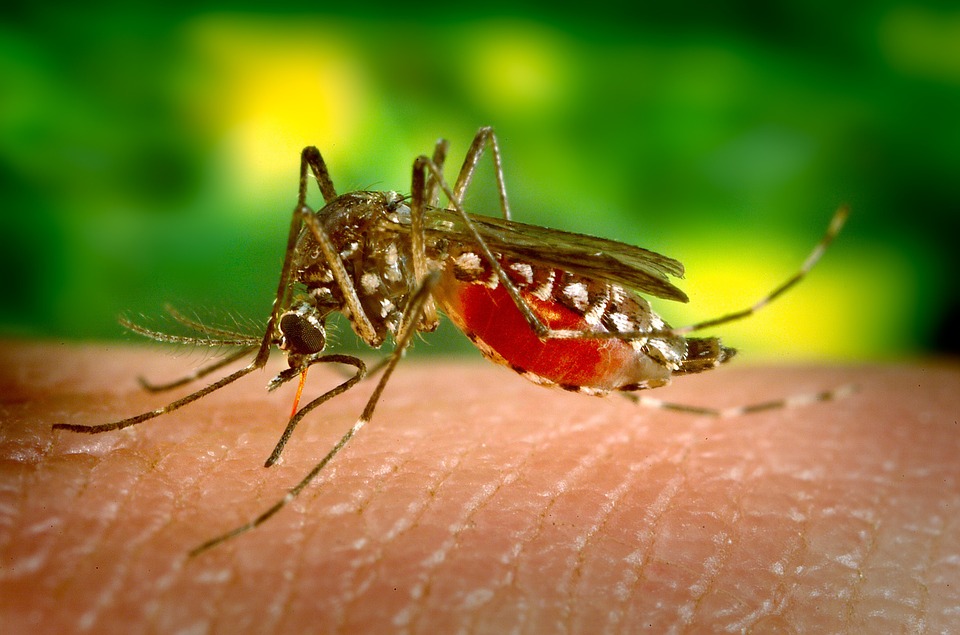Community
State public health officials announce season’s second human case of EEE in the Commonwealth

BOSTON (August 15, 2020) – The Massachusetts Department of Public Health (DPH) today announced that laboratory testing confirmed the second human case of Eastern Equine Encephalitis (EEE) virus infection, a female in her 60s who was exposed to EEE in Hampden County. As a result, the EEE risk level in Wilbraham has been raised to critical, and the EEE risk level in Hampden and Monson has been raised to high. All three municipalities are in Hampden County. Additionally, Chicopee, East Longmeadow, Ludlow, Palmer, and Springfield in Hampden County have been raised to moderate risk.
Across the Commonwealth, three municipalities are at critical risk critical, eight are at high risk, and 20 are at moderate risk for EEE.
DPH is working with the local health departments and the Massachusetts Department of Agricultural Resources to coordinate mosquito surveillance and appropriate public health response activities.
All residents are reminded to use mosquito repellent any time they are outside, and those in high and critical risk communities are advised to schedule their outdoor activity to avoid the dusk to dawn hours to reduce exposure to the mosquitoes most likely to spread EEE.
EEE is a rare but potentially fatal disease that can affect people of all ages. There has already been one other human case identified this year. In 2019, there were 12 human cases of EEE in Massachusetts with 6 deaths.
EEE virus has been found in 65 mosquito samples this year, over 70 percent of them in species of mosquitoes capable of spreading the virus to people. Information about current mosquito activity will continue to be updated regularly and can be found here.
People have an important role to play in protecting themselves and their loved ones from illnesses caused by mosquitoes. DPH recommends the preventive measures below.
Avoid Mosquito Bites
Apply Insect Repellent when Outdoors. Use a repellent with an EPA-registered ingredient (DEET (N, N-diethyl-m-toluamide), permethrin, picaridin (KBR 3023), oil of lemon eucalyptus [p-methane 3, 8-diol (PMD)] or IR3535) according to the instructions on the product label. DEET products should not be used on infants under two months of age and should be used in concentrations of 30% or less on older children. Oil of lemon eucalyptus should not be used on children under three years of age.
Be Aware of Peak Mosquito Hours. The hours from dusk to dawn are peak biting times for many mosquitoes. Consider rescheduling outdoor activities that occur during evening or early morning in areas of high risk.
Clothing Can Help Reduce Mosquito Bites. Wearing long-sleeves, long pants and socks when outdoors will help keep mosquitoes away from your skin.
Mosquito-Proof Your Home
Drain Standing Water. Mosquitoes lay their eggs in standing water. Limit the number of places around your home for mosquitoes to breed by either draining or discarding items that hold water. Check rain gutters and drains. Empty unused flowerpots and wading pools, and change the water in birdbaths frequently.
Install or Repair Screens. Keep mosquitoes outside by having tightly-fitting screens on all of your windows and doors.
Protect Your Animals
Animal owners should reduce potential mosquito breeding sites on their property by eliminating standing water from containers such as buckets, tires, and wading pools – especially after heavy rains. Water troughs should be flushed out at least once a week during the summer months to reduce mosquitoes near paddock areas. Horse owners should keep horses in indoor stalls at night to reduce their risk of exposure to mosquitoes. Owners should speak with their veterinarian about mosquito repellents approved for use in animals and vaccinations to prevent WNV and EEE. If an animal is suspected of having WNV or EEE, owners are required to report to DAR, Division of Animal Health by calling 617-626-1795 and to DPH by calling 617-983-6800.
-

 Community6 years ago
Community6 years agoNational Shrine of La Salette Festival of Lights 2017 set to begin
-

 Community6 years ago
Community6 years agoMassachusetts State Police looking for good home for retired dogs
-

 Crime6 years ago
Crime6 years agoFall River ranked most dangerous city in Massachusetts according to report
-

 latest6 years ago
latest6 years agoDurfee student allegedly overdoses on marijuana
-

 Community6 years ago
Community6 years agoVideo of Fall River Police goes viral
-

 Causes6 years ago
Causes6 years agoMissing Fall River woman found deceased
-

 Crime6 years ago
Crime6 years agoFall River Police add names to most wanted list
-

 Causes6 years ago
Causes6 years agoFall River teenager reported missing has been found





